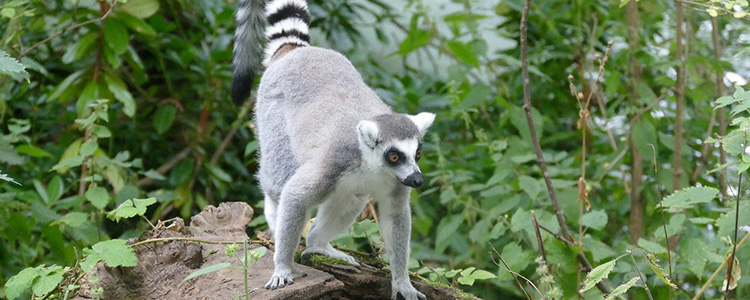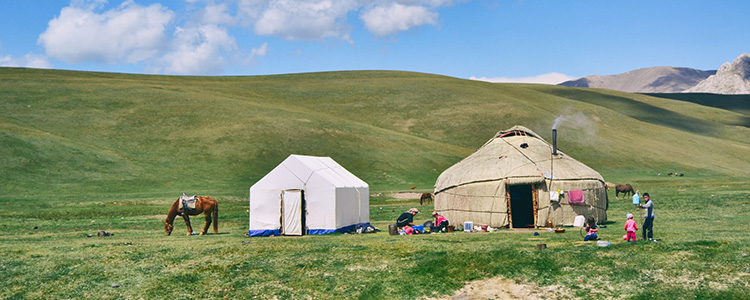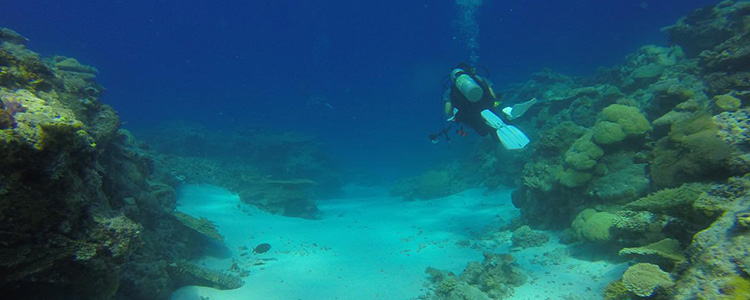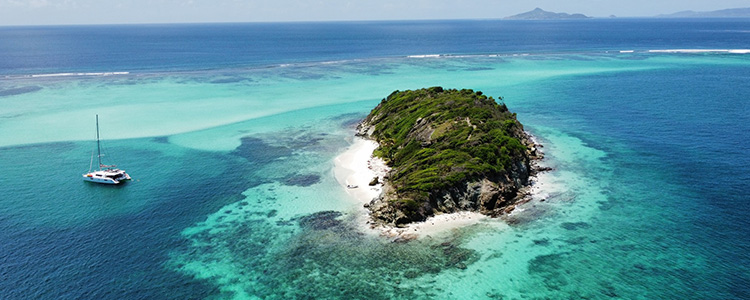Singapore Country Bundle: suggestions, stories and tips
Content about Singapore on WorldSupporter
 How does healthcare work in Singapore, and what travel insurance, health insurance or expat insurance do you need?
How does healthcare work in Singapore, and what travel insurance, health insurance or expat insurance do you need?
- How does the healthcare system work in Singapore?
- What is the quality of healthcare in Singapore?
- How does the public healthcare system work in Singapore?
- How does the public healthcare system work in Singapore?
- How is the general practitioner arranged in Singapore?
- How is the dentist arranged in Singapore?
- How is pregnancy care arranged in Singapore?
- How safe or unsafe is a trip or stay in Singapore?
- What work and travel insurance policies are suitable for short and long stays in Singapore?
- What emigration and expat insurance can you take out for Singapore if you are going to live there for a while?
How does the healthcare system work in Singapore?
What is the quality of healthcare in Singapore?
- Singapore has very good healthcare facilities, one of the most efficient and high quality healthcare systems in the world! It is common for people to come to Singapore from Indonesia for medical care.
- The cost of healthcare is high, as is the cost of everything in Singapore.
- There is a two-tier system with both private and public healthcare, supported by the national Medisave system, which provides medical coverage for Singapore citizens and permanent residents.
- Medisave does not cover expats, so private health insurance is essential.
- Hospitals have three types of wards; A, B and C. C is the cheapest, with generally 9 beds per ward, A is the most expensive, but you do get a private room.
- Pharmacies are easy to find in shopping malls and community centres, and some are even open 24 hours a day.
- Emergency services are efficient and reliable. For an ambulance, dial 995.
- Medical staff also speak good English, making it even easier for expatriates to seek care.
How does the public healthcare system work in Singapore?
- Singaporeans and permanent residents are entitled to public healthcare services and the insurance programme that covers most (around 70%) of the costs. Registration is automatic.
- Permanent residents of Singapore pay contributions to the Central Provident Fund (CPF).
- This health insurance system consists of the 3 M’s: MediShield Life (the compulsory health insurance), MediSave (a kind of medical savings programme for the costs of basic healthcare) and MediFund (the safety net for those who cannot afford it themselves).
- Other temporary residents have to pay the costs themselves unless they have private insurance.
How does the public healthcare system work in Singapore?
- The private healthcare sector is large in Singapore.
- Expats generally make the most use of the private sector. The care is very good, there is more choice of treatments and care centres and it offers more comfortable services.
- The costs are a lot higher than in the public sector.
How is the general practitioner arranged in Singapore?
- GPs are the first step in healthcare. They can be found in government-subsidized outpatient clinics, private clinics and health centres. There are many clinics spread across Singapore.
- Most clinics offer walk-in appointments.
- As a resident, you pay around 15-30 Singapore dollars, but as a foreigner, around 50-60 Singapore dollars.
How is the dentist arranged in Singapore?
- In dental care, there is also a mix of private and public providers, who charge different fees for treatments. Dental care is regulated by the Singapore Dental Council.
- In general, the treatments are of high quality.
- There are two major dental care facilities: the National Dental Centre Singapore (NDCS) and the National University Centre for Oral Health Singapore (NUCOHS). In addition, you can also go to outpatient clinics, hospitals and private practices.
- The NDCS has a database where new residents can search for dentists in their area.
How is pregnancy care arranged in Singapore?
- Pregnancy care is well organised in Singapore, with full prenatal and postnatal care.
- All care is provided by doctors and midwives, there is no midwifery.
- The infant mortality rate is very low, so pregnant women are in good hands here.
- Most births take place in hospitals, but home births are also an option, although this only occurs in less than one percent of cases in Singapore.
- Abortion is legal until at least 24 weeks, or later if the mother is at risk.
- IVF and IUI treatments are available in Singapore.
- Breastfeeding is encouraged, and it is socially acceptable to breastfeed in public. There are also lactation rooms available in many shopping malls and public buildings.
How safe or unsafe is a trip or stay in Singapore?
What should you pay attention to in terms of safety in Singapore?
- Singapore is one of the safest countries in the world, with very low crime rates. This is due to strict law enforcement and severe penalties for violations. It is therefore very safe for expats, provided they follow the rules themselves.
- There are also virtually no natural disasters in Singapore, making it a safe place to live.
- As a new resident, it is important to familiarize yourself with the strict rules, such as the ban on chewing gum, high fines for littering on the streets and strict censorship. Also be careful about what you share online, as offensive statements about religion or politics can have legal consequences.
What should you look out for in terms of diseases in Singapore?
- The risk of infectious diseases is low, but dengue fever and other mosquito-borne diseases are a problem, especially during the rainy season (May-October). If you are pregnant or become pregnant in Singapore, it is important to be aware of the risks of the Zika virus.
- Laat je goed informeren over de laatste stand van zaken met betrekking tot de gezondheidsmaatregelen en vaccinaties.
- The tap water in Singapore is safe to drink!
What should you pay attention to when it comes to traffic in Singapore?
- Singapore has a well-organized traffic system. Note that traffic laws are strictly enforced and violations, such as drunk driving or running red lights, result in heavy fines or imprisonment.
- In general, the maximum speed limit is 50 km/h unless otherwise indicated. For example, on the Expressway it is between 70 and 90 km/h and in school zones, for example, 40 km/h.
- Public transport is fast, efficient and affordable. The MRT (subway) and buses are the most popular modes of travel.
- Expats can drive with their foreign driver's license for up to 12 months, but must then obtain a Singaporean driving permit. Traffic regulations are comparable to European standards.
What work and travel insurance policies are suitable for short and long stays in Singapore?
Is the trip to Singapore and your return sufficiently covered? Are you sufficiently covered before, during and after your activities? Which insurance best suits your trip and your activity? Read more about insurances for abroad on JoHoinsurances.org.
What emigration and expat insurance can you take out for Singapore if you are going to live there for a while?
- For some visas it is mandatory to prove that you are sufficiently insured yourself. This can also be done through your employer. However, most emigrants also take out their own international insurance to cover any gaps in the local insurance, or for example repatriation.
- Read more about insurances for abroad on Expatinsurances.org.
 Packing list for Singapore, travel insurance for Singapore, and taking your belongings
Packing list for Singapore, travel insurance for Singapore, and taking your belongings
To pack and bring to Singapore
- Packing list for Singapore, travel insurance for Singapore, and taking your belongings
- What to take with you to Singapore: spotlighted
- What should you keep in mind when traveling to Singapore with your belongings?
- Are there mosquitoes in Singapore?
- Are there sandflies in Singapore?
- Can you buy DEET, or other mosquito repellents, in Singapore?
- Can you buy a joint or weed in Singapore, or take it with you to Singapore?
Packing list for Singapore, travel insurance for Singapore, and taking your belongings
To take or not to take to Singapore, leave at home or arrange locally?
Sufficiently insured or not for your activities in Singapore?
Sufficiently insured or not for your trip to Singapore?
What to take with you to Singapore: spotlighted
Featured items:
- Documents: a passport that is valid for at least 6 months and online/offline copies.
- Money: having a few Singapore dollars for when you arrive is not a bad idea, but you can use your debit card and credit card everywhere.
- Care: high factor sunscreen.
- Outdoor and practical: cap/hat and sunglasses.
- Clothing: breathable clothing made of cotton or linen is most comfortable in hot, humid weather, combined with a sweater for the very cold air conditioning. Tropical showers are also not uncommon, so a raincoat is useful.
- Shoes: comfortable walking shoes and possibly sandals or flip-flops.
- Reusable water bottle, because you will need to drink a lot of water!
- Medicines and travel kit: a small first aid kit with ORS and hand sanitizer for visits to Hawker Centres. Insect repellent (see also DEET mosquito repellent).
- Technology and equipment: world plug with type G (see also world plug or travel plug).
What are some other options for packing as well?
- A nice outfit for when you want to go out for the night.
- A small umbrella.
- A quick-drying travel towel.
What should you keep in mind when traveling to Singapore with your belongings?
- The strict laws regarding the import of products.
Are there mosquitoes in Singapore?
- Mosquitoes are being fought vigorously in Singapore, but it is still a tropical country. So they are still there, especially during the rainy season.
- Mosquitoes can also transmit diseases such as dengue fever. So it is important to protect yourself well.
- More about protection against mosquitoes and insects.
Are there sandflies in Singapore?
- Yes, there are certain types of sand flies in Singapore, but don't worry. They are annoying, but do not transmit diseases.
Can you buy DEET, or other mosquito repellents, in Singapore?
- DEET and other mosquito repellents are easy to obtain in Singapore.
- Walk into a pharmacy, drugstore (e.g. Watson) or large supermarket and you have it!
Can you buy a joint or weed in Singapore, or take it with you to Singapore?
- Everything that has to do with cannabis is illegal.
- There are high penalties for using, possessing and importing cannabis. So a big risk.
 Singapore: Updates & Travel
Singapore: Updates & Travel
Travel in Singapore?
- A city-state that is oh so clean, bursting with shopping malls, has tiny tropical islands off the coast and where the Raffles Hotel has become world famous: this is Singapore! From Orchard Road to Little India and from China Town to Arab Street. The orchid is the national flower and you will find this special plant everywhere. Also special is the traditional architecture combined with futuristic buildings with vertical gardens.
- Singapore is a paradise for shopping. A visit to one of the many impressive shopping malls is therefore a must.
- In Little India you can escape from the busy city life and imagine yourself in another world. Surprisingly enough, many Indians live in Little India and therefore it is also full of Indian shops and restaurants.
- Chinatown is located right next to the Financial District and sometimes still has an authentic Chinese atmosphere. Because there are many tourists who find Chinatown interesting, a lot of trinkets are also sold. In the meantime, many clothing manufacturers from India have also settled between the Chinese shops and you can buy a nice suit very cheaply. The Buddha Tooth Relic Temple and Museum in Chinatown is also worth a visit.
- Eating in a food court or a hawker center is cheap and an experience in itself. The many smells that come your way when you walk through one of these busy places make it difficult to choose.
- The Singapore Flyer is a Ferris wheel that is located in the Marina district. From the closed cabins you have a beautiful view of Singapore.
- Sentosa island, a small tourist paradise with everything: beaches, hotels, sports facilities and attractions. Two things are definitely worth it: Underwater World and Dolhpin Lagoon and Butterfly Park.
- You can eat well along the water along the quays of the Singapore River. Boat Quay and Clark Quay are popular places to eat out.
- Orchard Road is the street with the most shopping malls. A number of shopping malls are home to the entertainment venues. These bars and clubs usually only open after the shops have closed. The famous Raffles hotel is a beautiful building in colonial style.
- The colonial center is beautiful. Here you will find the parliament building, the Asian Civilizations Museum and the Art House. A nice photo spot is the statue of Sir Stamford Raffles with the Singapore River and the skyscrapers on the other side in the background.
- Make sure you do not commit any violations in Singapore, because the penalties are not light. Singapore is also an incredibly clean country, so throwing a piece of gum on the street is quickly seen as a crime (resulting in a huge fine).
- Be prepared that despite the high penalties, pickpockets are a plague for travelers in Singapore.
Updates Singapore
- More about Singapore, updates and contributions, see the link below.



 Singapore
Singapore



























































